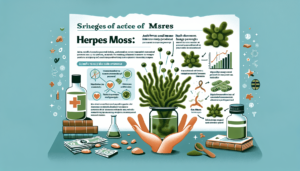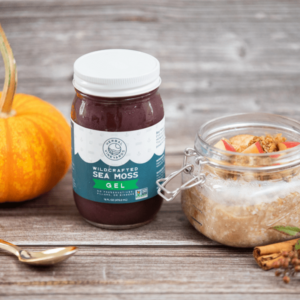The Best Fluffy Pancakes recipe you will fall in love with. Full of tips and tricks to help you make the best pancakes.

Did you know that sea moss, also known as Irish moss, may have a potential positive impact on testosterone levels? Many studies suggest that sea moss contains several important minerals and nutrients that could help support hormone balance, including testosterone. From its rich content of zinc, magnesium, and selenium to its ability to promote overall health and vitality, sea moss is gaining attention as a natural supplement for those looking to maintain healthy testosterone levels. Let’s explore the potential benefits of sea moss and how it may contribute to overall hormonal well-being.
Free Sea Moss Sexual Health Guide
What is sea moss?
Sea moss, also known as Irish moss or Chondrus crispus, is a type of red algae that is native to the Atlantic coastlines of Europe and North America. It has been used for centuries in traditional medicine and culinary practices. Sea moss has a gelatinous texture and is commonly used as a thickening agent in soups, stews, and desserts.
Origin and characteristics of sea moss
Sea moss has a long history of use in traditional Irish and Jamaican cultures. In Ireland, it has been traditionally used as a natural remedy for various ailments, while in Jamaica, it is often enjoyed as a nutritious beverage known as “Irish moss drink.” Sea moss is rich in vitamins, minerals, and antioxidants, which contribute to its potential health benefits.
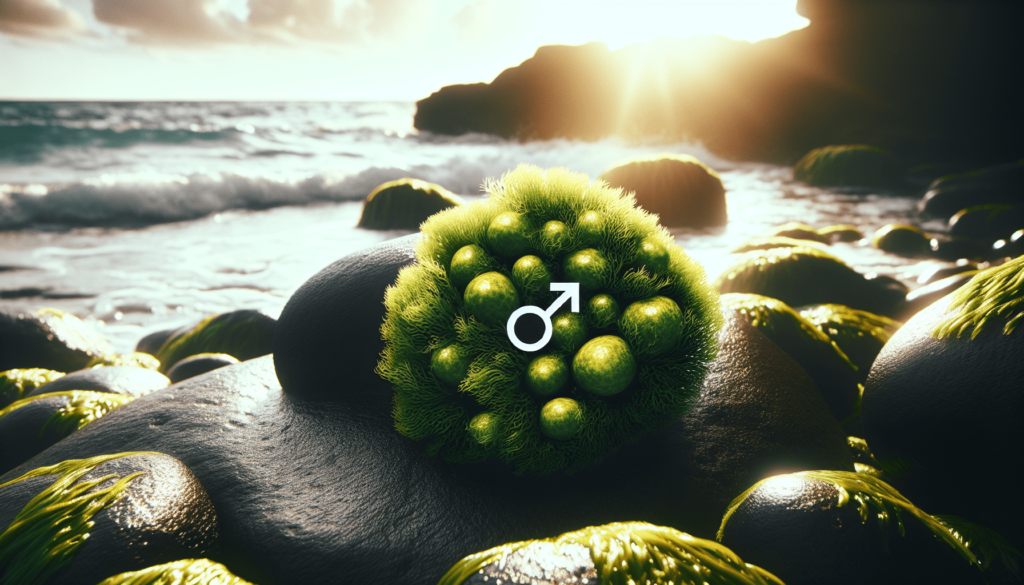
Nutritional composition of sea moss
Sea moss is known for its impressive nutritional profile. It is a rich source of vitamins, including vitamin C, vitamin A, vitamin E, and various B vitamins. It also contains essential minerals like potassium, calcium, magnesium, and iodine. In addition, sea moss provides dietary fiber, protein, and antioxidants, all of which are important for maintaining overall health and well-being.
What is testosterone?
Testosterone is a hormone primarily produced in the testicles in males and in smaller amounts in the ovaries and adrenal glands in females. It plays a critical role in the development and maintenance of male reproductive tissues and secondary sexual characteristics. In both men and women, testosterone also influences various aspects of health and well-being beyond just reproductive function.
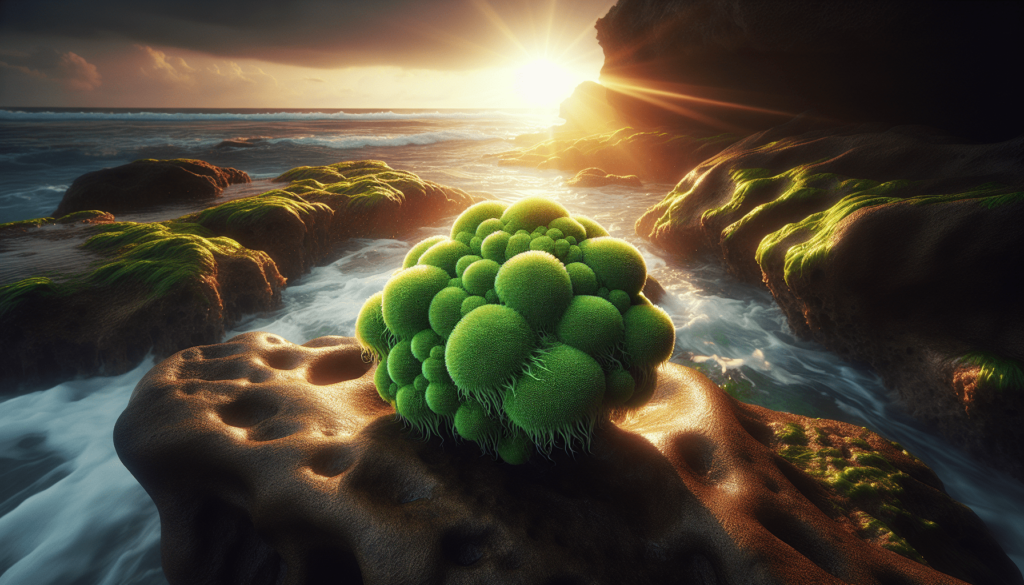
Importance of testosterone in the body
Testosterone is vital for numerous bodily functions. In males, it supports the development of male reproductive organs and the production of sperm. It is also responsible for the growth of muscle mass, bone density, and body hair. In females, testosterone contributes to muscle strength, bone health, and reproductive function. Optimal testosterone levels are essential for overall physical and mental well-being in both genders.
Roles and functions of testosterone
Aside from its crucial role in reproductive health, testosterone plays a significant role in other bodily functions. It aids in the regulation of muscle mass and strength, bone density, and fat distribution. Testosterone is also involved in red blood cell production and maintenance of cognitive function, mood, and energy levels. It supports the growth and repair of tissues throughout the body and contributes to a healthy libido.
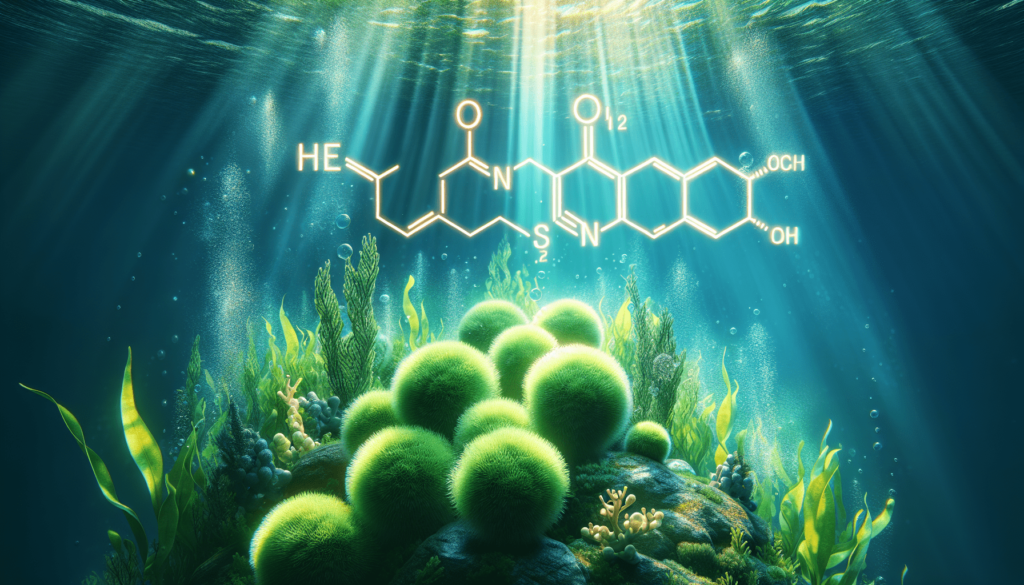
Potential effects of sea moss on testosterone levels
Claims and anecdotal evidence suggest that sea moss may potentially influence testosterone levels. However, scientific research on this specific topic is limited, and more studies are needed to fully understand sea moss’s impact on testosterone.
Scientific research on sea moss and testosterone
Although there is currently limited scientific research specifically focused on the effects of sea moss on testosterone levels, some studies have explored the potential health benefits of sea moss in general. These studies have demonstrated sea moss’s ability to provide essential nutrients, support immune function, aid in digestion, and promote overall well-being. It is worth noting that the impact of sea moss on testosterone levels requires further investigation.
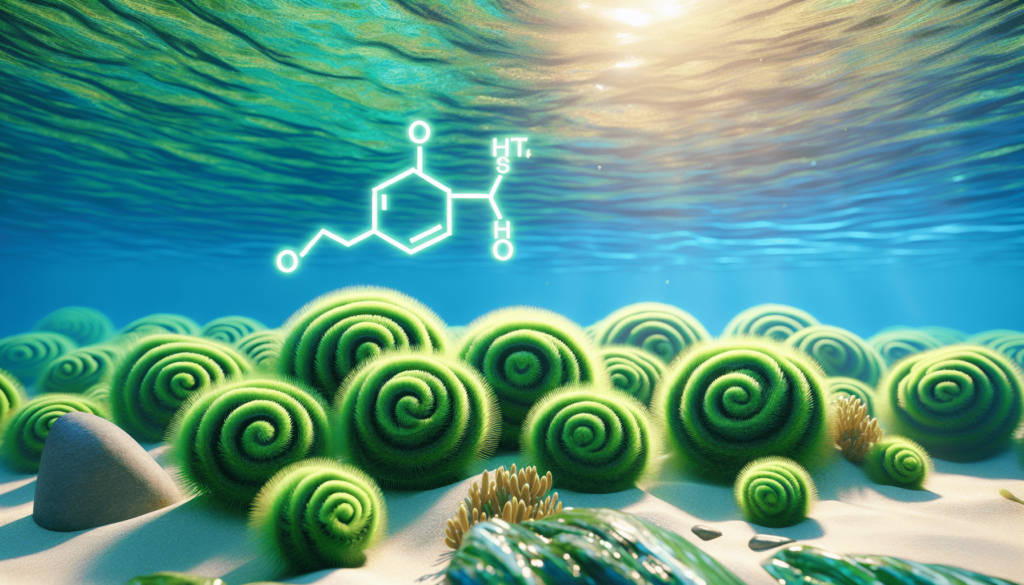
Components of sea moss that may influence testosterone
Sea moss contains various bioactive compounds that could potentially influence testosterone levels. It is rich in vitamins and minerals that play a crucial role in hormone synthesis and regulation. Additionally, sea moss contains amino acids, which are essential for protein synthesis and muscle development. These nutrients and compounds, when combined, may have indirect effects on testosterone production and overall hormonal balance.
Benefits of optimizing testosterone levels
Optimizing testosterone levels can have significant benefits for both men and women. Some of these benefits include:
Muscle development and strength
Testosterone is a key hormone in promoting muscle development and strength. Optimal testosterone levels can support muscle growth, improve physical performance, and aid in recovery after exercise or injury.
Bone health
Testosterone is essential for the maintenance of healthy bones and the prevention of conditions like osteoporosis. Adequate testosterone levels help maintain bone density and reduce the risk of fractures and bone-related disorders.
Sexual health
Testosterone plays a crucial role in sexual health and libido. Optimal testosterone levels can enhance sexual desire, improve erectile function in men, and contribute to a satisfying and fulfilling sex life.
Cognitive function
Testosterone influences cognitive function, including memory, concentration, and cognitive abilities. Balanced testosterone levels have been associated with improved cognitive performance and may reduce the risk of cognitive decline.
Mood regulation
Testosterone contributes to mood regulation and emotional well-being. Low testosterone levels have been linked to symptoms of depression, irritability, and decreased motivation. Optimizing testosterone levels may help improve mood and overall mental well-being.
Energy levels
Testosterone plays a role in energy regulation and vitality. Adequate testosterone levels contribute to increased energy, improved stamina, and a general sense of well-being.
Other factors influencing testosterone levels
Apart from sea moss, several other factors can influence testosterone levels. It is essential to consider these factors when aiming to optimize testosterone levels:
Age and testosterone
Testosterone levels naturally decline with age, particularly in men. This decline begins around the age of 30 and continues gradually over time. However, maintaining a healthy lifestyle and optimizing other factors can help mitigate the age-related decline in testosterone levels.
Diet and lifestyle
A balanced diet that includes an adequate intake of essential nutrients is crucial for testosterone production and overall hormonal balance. A diet rich in protein, healthy fats, fruits, vegetables, and whole grains can support optimal testosterone levels. Additionally, minimizing alcohol consumption and avoiding excessive sugar intake may also positively affect testosterone levels.
Exercise and physical activity
Regular exercise, particularly strength training and high-intensity interval training (HIIT), can increase testosterone production and optimize hormone levels. Physical activity helps stimulate the release of testosterone and supports overall health and well-being.
Sleep quality
Adequate and restful sleep is vital for testosterone production. Poor sleep quality and insufficient sleep duration can negatively impact hormone levels and overall health. Prioritizing quality sleep is essential for maintaining optimal testosterone levels.
Stress management
Chronic stress can disrupt hormone balance, including testosterone levels. Implementing stress management techniques, such as meditation, yoga, and relaxation exercises, can help reduce stress and support healthy testosterone levels.
Potential risks and considerations
While sea moss is generally considered safe for consumption, there are certain considerations and potential risks to be aware of:
Interactions with medications
Sea moss may interact with certain medications, particularly blood-thinning medications. Always consult with a healthcare professional before consuming sea moss, especially if you are taking any medications or have underlying health conditions.
Allergies and side effects
Some individuals may be allergic to sea moss or have a sensitivity to it. Allergic reactions can range from mild skin irritation to more severe symptoms. Additionally, excessive consumption of sea moss may lead to digestive issues such as diarrhea or bloating. It is important to start with small amounts and monitor your body’s response.
Individual variations and response to sea moss
Each person may respond differently to sea moss, and individual variations in efficacy and tolerability should be considered. It is advisable to pay attention to how your body reacts to sea moss and make adjustments as necessary.
Recommended intake and precautions
When consuming sea moss, it is important to follow recommended guidelines and take necessary precautions:
Safe dosage and forms of sea moss
The recommended dosage of sea moss varies depending on factors such as age, health condition, and unique nutritional requirements. It is generally suggested to start with 1-2 tablespoons of sea moss gel or powder per day and gradually increase as tolerated. It is crucial to source sea moss from reputable suppliers to ensure its quality and safety.
Consulting with a healthcare professional
Before incorporating sea moss into your dietary routine, it is advisable to consult with a healthcare professional, especially if you have any underlying health conditions or are taking medications. They can provide personalized guidance and ensure it is safe for you to consume sea moss.
Combining sea moss with other supplements or medications
Sea moss should not be considered a replacement for any prescribed medication or medical treatment. If you are already taking any supplements or medications, discuss their compatibility with sea moss with your healthcare professional.
Additional natural methods to support testosterone levels
In addition to sea moss, there are several other natural methods that can support healthy testosterone levels:
Eating a balanced diet
A well-balanced diet that includes lean proteins, healthy fats, fruits, vegetables, and whole grains can support testosterone production and overall hormone balance. Include foods rich in vitamins and minerals, such as zinc, vitamin D, and magnesium, which are essential for testosterone synthesis.
Regular exercise and strength training
Engaging in regular physical activity, including both cardiovascular exercises and strength training, can improve testosterone levels. Strength training exercises, in particular, have been shown to increase testosterone production.
Getting enough sleep
Prioritize quality sleep to support healthy testosterone levels. Aim for 7-9 hours of uninterrupted sleep each night and create a conducive sleep environment by practicing good sleep hygiene.
Managing stress
Chronic stress can disrupt hormone balance, including testosterone levels. Implement stress management techniques such as meditation, deep breathing exercises, and engaging in activities you enjoy to reduce stress and support balanced hormone production.
Avoiding harmful substances
Avoiding harmful substances like excessive alcohol consumption and tobacco smoking can help maintain optimal testosterone levels. Alcohol and smoking have been shown to negatively impact testosterone production.
Herbal supplements and adaptogens
Certain herbal supplements and adaptogens, such as ashwagandha and tongkat ali, have been traditionally used to support healthy testosterone levels. However, it is important to discuss their use with a healthcare professional before incorporating them into your routine.
Conclusion
Sea moss is a nutrient-rich algae that shows potential for supporting overall health and well-being. While its impact on testosterone levels specifically requires further scientific investigation, sea moss boasts a variety of essential vitamins, minerals, and bioactive compounds that can contribute to hormonal balance and overall vitality. It is always important to consult with a healthcare professional and take individual considerations into account when incorporating sea moss or any natural supplement into your routine. Maintaining a healthy lifestyle, including a balanced diet, regular exercise, quality sleep, stress management, and avoiding harmful substances, is crucial for testosterone optimization and overall well-being.




